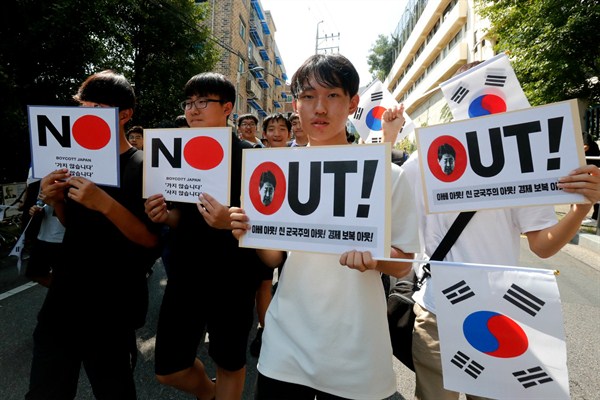Over the past half century, the United States and its two key allies in Northeast Asia, South Korea and Japan, have established a limited yet effective framework for trilateral defense cooperation. That system has largely remained intact despite a history of bad blood between Seoul and Tokyo, specifically over Japan’s brutal occupation of the Korean Peninsula from 1910 until 1945. But regional observers are now increasingly worried that this edifice is beginning to crumble.
The latest sign of trouble was South Korea’s decision last month to scrap a 2016 intelligence-sharing pact with Japan. The General Security of Military Information Agreement, brokered by the U.S. under President Barack Obama, created the foundation for more effective and integrated security cooperation between Tokyo and Seoul at a time when North Korea was ramping up development of its nuclear weapons and ballistic missile capabilities. Officials in Washington continue to view the deal as a valuable contribution to their efforts to create a bulwark against North Korean provocations.
But a damaging feud with Japan over trade and historical issues has recently led President Moon Jae-in’s administration to question the value of the agreement. In early August, Japan removed South Korea from a “white list” of countries with preferential trading status, based on dubious national security concerns. Seoul cited that move in its decision to scrap the intelligence-sharing deal, accusing Tokyo of causing “an important change in security-related cooperation between the two countries.” Japanese Foreign Minister Taro Kono called the move “extremely regrettable.”

